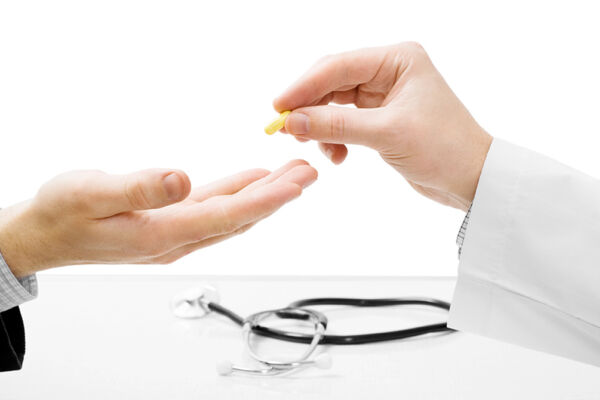Understanding what happens during drug and alcohol detox is key to the recovery process. Detox can be physically and psychologically challenging. By gaining insight into what happens during detox, you can work with healthcare professionals to achieve a successful outcome and a lasting recovery.

BEGIN YOUR RECOVERY TODAY!
We can help you achieve permanent sobriety that gives you your life back. Call to learn more about our therapy options in Phoenix, AZ.
The Importance of Detox in the Journey to Recovery
Drug and alcohol detox is the first step in the recovery process, where drugs and alcohol are safely removed from the body. This step is the foundation for the treatment process by preparing a person to be more receptive to treatment. Without detox, an individual continues to be impaired, which can impede the ability to participate in addiction treatment and recovery activities.
What Happens During Drug Detox?
Drug detox involves several steps that are dependent on the type of substance used, the severity of the addiction and the health condition of the individual. The goal is to reduce the negative impact of withdrawal symptoms and make the detoxification process as easy, safe and comfortable as possible. Rapid detox on your own is rarely successful. Inpatient detox is generally the most effective form of detox.
Initial Assessment and Evaluation
Addiction treatment starts with a comprehensive evaluation performed by a medical professional specializing in professional detox services. The assessment helps the inpatient treatment center understand the individual’s lifestyle and provides insight into the patient’s circumstances.
The therapist gathers information about the patient’s goals and prior and current drug use, as well as their career or school responsibilities and any previous attempts at drug rehab. Additionally, the assessment covers an individual’s medical history, including details about prior surgeries, existing health conditions and eating habits.
The patient may ask questions concerning the addiction treatment process, including “How long does detox last?” This initial evaluation and assessment help determine the most appropriate approach for inpatient detoxification.
The Role of Medical Supervision and Support
Medical supervision during inpatient detox ensures the safety and well-being of the patient. The treatment center monitors vitals, provides medical assistance with withdrawal symptoms and addresses any complications that arise, including any medical emergencies.
Common Withdrawal Symptoms: Physical and Psychological Aspects
Drug addiction changes the way your brain works, and it takes a great deal of work to get it back to its normal state. Sometimes, the damage may be permanent and cause physical and psychological symptoms. With repeated use, you may feel you need the drug to do specific things, such as talking to others or falling asleep. You may lack interest in hobbies and activities that once brought joy. Addicts also often spend excessive amounts of time thinking about the substance, including when they’ll have their next hit and how they’ll obtain more.
Medication-Assisted Treatment (MAT) and Other Detox Methods
Several detox methods are available to help an individual manage the symptoms of withdrawal. Treatment centers choose the best method depending on the type of substance used and the severity of the withdrawal symptoms.
- Medication-assisted treatment (MAT). MAT is used in some cases to reduce the uncomfortable effects of drug detox and can prevent some of the more severe side effects, including seizures, high blood pressure, irregular heartbeat and hallucinations. Detoxification from alcohol and some drugs, such as benzos, can be fatal. MAT involves constant supervision and medications.
- Holistic detox. This method focuses on the physical, spiritual and emotional aspects of substance addiction. Alternative approaches, such as massage therapy, yoga, meditation and acupuncture, may provide relief.
- Nutritional support. A well-balanced diet is essential during medical detox to replenish the nutrients lost by substance abuse. Nutritional support includes balanced meals, vitamins and supplements.
- Therapy. Individual counseling and group therapy help an individual address the mental and emotional aspects of addiction, provide coping skills and establish the foundation for long-term recovery and a successful detox.
The Importance of a Personalized Detox Plan
What works for one person in detox may not work for another, which makes personalized detox plans essential for recovery. Personalized plans ensure the individual is comfortable and safe throughout the entire process. Your healthcare provider may make adjustments during detox as withdrawal symptoms and drug cravings present themselves.

Managing Withdrawal Symptoms
Withdrawal is often one of the most challenging steps in recovery. Understanding what the common withdrawal symptoms are and how to manage them is essential in preventing relapse and staying committed to treatment.
Common Withdrawal Symptoms and How They are Managed
Withdrawal symptoms vary from one person to another depending on the type of substance used, the length of abuse and the person’s overall health and metabolism.
- Tremors or trembling
- Excessive sweating
- Muscle aches and pains
- Decreased appetite
- Irritability or extreme agitation
- Anxiety
- Nausea and vomiting
- Paranoia
- Fatigue
- Headache
While medical assistance is often the most effective way to help patients experiencing withdrawal symptoms, it’s not the only way. Hydration, exercise, sleep and relaxation methods, such as journaling and engaging in hobbies, can also prove helpful.
Medications Used in Medically Assisted Detox to Ease Withdrawal Symptoms
The FDA has approved some medications to assist with opioid drug abuse and alcohol addiction disorders. For opioid abuse, methadone, buprenorphine and naltrexone are often used to reduce withdrawal symptoms. For alcohol abuse disorders, medications such as acamprosate and naltrexone may help reduce cravings and severe withdrawal symptoms.
The Role of Supportive Care and Monitoring
Individuals going through detox and recovery often feel alone, which can be challenging and emotionally draining. Having a support network often helps an individual navigate the highs and lows of recovery by providing reassurance and validation. A support network may include healthcare professionals, family, friends and peer groups.
How to Choose the Right Detox Program
Choosing the right substance abuse treatment program and detox services can be essential to the success of your recovery. Start by asking your healthcare providers and family and friends for referrals. Visit the treatment center, if possible, and trust your instincts and intuition when choosing the place that makes you feel most comfortable and supported.
If you or someone you love is seeking help with substance abuse, contact Camelback Recovery for detox services and treatment at 602-466-9880. We can help get you on the path to better health.





